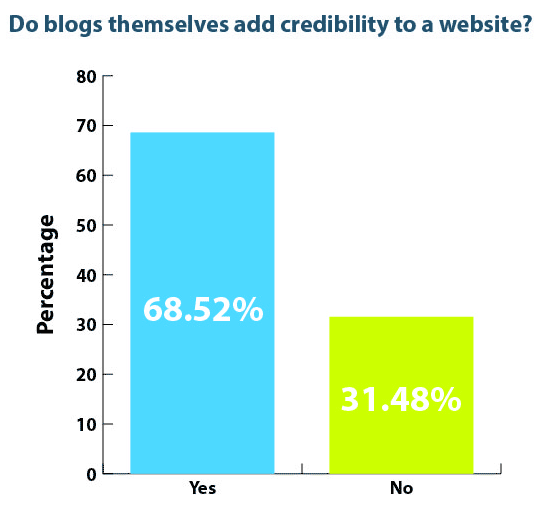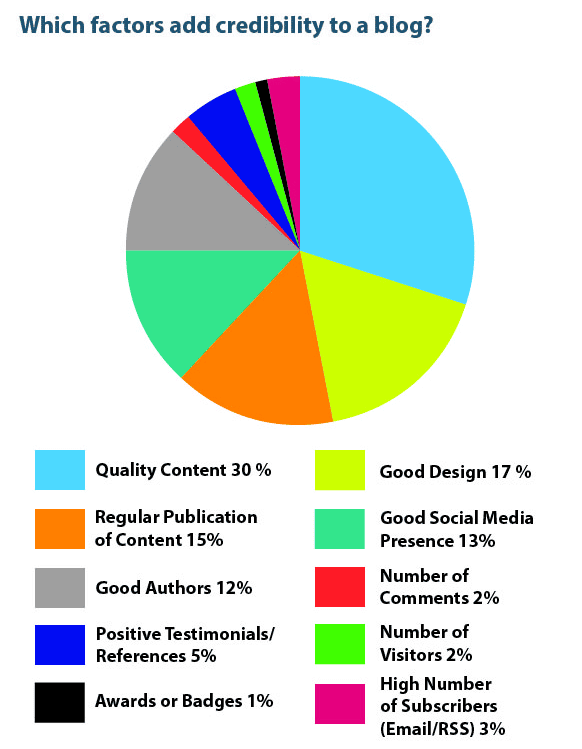Every blog article is an attempt to secure the reader’s trust.
- If the reader doesn’t trust you, they won’t buy from you.
- If the reader doesn’t trust you, they won’t believe what you’re saying.
- If the reader doesn’t trust you, they won’t convert.
Whenever you write, you should pay attention to this all-important subject of trust.
So how do you do it? How do you build trust? I’ve assembled a list of 11 statements that have been proven to build trust.
It’s important to remember that trust is a whole package deal. You can’t simply throw in a few trust words and expect all your readers to automatically trust you. You have to use other trust factors such as detailed copy, authoritative tone, consistent output, high quality, social signals, and a good reputation.
Along with these things, you can add in phrases and words that will drive that trust even further.
How to use this list of trust words
The words and phrases in this list will improve the trust in your blog, regardless of how you use them.
Keep in mind that these are intended to be used on your blog. In my study of what makes blogs trustworthy, I’ve found that it always comes back to quality content as the most important factor.
Jeff Bullas conducted a survey and asked people “do blogs themselves add credibility to a website?” Overwhelmingly, respondents said “yes.”
Image and research from JeffBullas.com.
When he dug deeper into the specific factors that added credibility, “quality content” was at the top of the list.
Image and research from JeffBullas.com.
To further drive the point home, Bullas discovered that bad content is the largest factor that ruins blog credibility. It’s all about the content — it’s quality and “trustability.”
The logical conclusion is that the specific words and phrases that you use in your blog article will help to enhance trust.
These words will help you achieve the level of success you need in your blog articles. Here’s how you can use them.
- Add them to the end of your copy. Roger Dooley, who writes on the subject of neuromarketing, explained it this way: “One short sentence at the end of your ad could cause a major increase in the level of trust customers place in you. Believe it or not, it’s true. Researchers found that placing … [a] statement at the end of an ad for an auto service firm caused their trust scores to jump as much as 33%!” The mere presence of these words helps to enhance the trustability of a blog article.
- Sprinkle them throughout your copy. These are just single words. You can sprinkle them throughout your copy to create an overall sense of assurance in the article as a whole.
Make these words a part of your regular vocabulary when you write, and you’ll be able to gain the trust of your readers.
1. Trust
Not surprisingly, the word “trust” enhances trust. If you want someone to trust you, simply tell them that they can.
There are many ways to impact trust, but the most direct way is just by saying “trust.” You can use this word in a wide variety of ways:
- Trust us
- Trust me
- Trust the data
- Trust the research
- Can be trusted
- Trusted us
2. Fair price
When discussing pricing, tell your readers that they’re getting a fair price.
Every consumer has their guard up when they are making a purchase. Are they getting a fair deal? Are they losing money? Is it worth it?
Inform your readers that the price you are producing is a fair price, and the trust factor of your site will increase.
In Roger Dooley’s research, this phrase improved the trust factor by 7%.
3. Caring
People want to know that they are being treated right. Even though they are a reader, seemingly passive, they want to still feel as if they are respected, valued, and appreciated. The word “caring” can communicate this concept.
In Dooley’s study, the word “caring” improved the trust factor by 11%.
4. Fair treatment
The term “fair treatment” produces an uptick in trust for similar reasons to “caring.” In tests, this word improved the trust factor of a website by 20%.
“Fair treatment” is very user-centered. This idea of focusing on a user is essential in creating a good experience. User experience isn’t just about functioning menus and good design. It’s also about speaking directly to the user in the way that you compose your copy.
5. Quality
Quality is one of those words that just makes you feel assured. We all know what it feels like when a product or service that we are receiving lacks in quality.
When you assert that your product or service has quality, you can gain your user’s trust.
In studies, this word improved the trust factor of copy by 30%.
6. Competency
Even though it’s a longer word, “competency” is a great one to use in your copy. In fact, as Dooley’s study indicates, it has the highest trust factor of any of the words he examined, improving the trust by 33%!
7. Apologize/Sorry
When you take the time and effort to apologize, people will trust you more. I’ve seen this happen in my own blogging experience. It’s amazing how people will jump on a simple typo or broken link.
When this happens, I fix it, apologize, and move on. The simple act of saying “Sorry” shows readers that you care and that you’re humble and transparent enough to own up to your mistakes.
8. Change
When you tell readers you’re changing, this can grow trust, too. Change is hard and uncomfortable. It also reflects an effort to get better and to improve.
Simple change-oriented statements will increase your trustability:
- “We recognize that some of our previous articles weren’t detailed enough. We’re changing that now. Beginning in October, all articles will be 2,000 words or less and will be reviewed by a team of three editors.”
- “Unfortunately, we had to let our marketing manager go. We are now changing our entire company structure to provide more care to the customer.”
9. Never
The word “never” is a negative statement, but when it’s used for a positive purpose, it can have a profound effect on your blog’s trustability.
Here are some examples of how you can use the word “never”:
- Never release
- Never share
- Never misrepresent
- Never overcharge
- Never leave
- Never hang up
- Never neglect
10. Always
The word “always” is a lot like “never.” It suggests a sense of stability, assurance, and protection.
When you “always” do something, people have an easier time trusting you.
- Always be free
- Always protect your identity
- Always have the lowest price
- Always produce quality content
Use the word always a couple of times, and you’ve enhanced trust.
11. Privacy
People value their privacy. This is especially true in an era of constant security breaches, identity theft, corporate hacks, and data loss.
When you tell people that you’ll protect their privacy, respect their privacy, guard their privacy, and honor their privacy, they are more likely to trust you.
Conclusion
The next time you write a blog, think about trust.
Will people trust this content? Why will they (or won’t they) trust it? What can you do to improve their trust in the blog post?
These simple words and phrases will go a long way in improving your blog’s trust.
What do you do to enhance trust in your blog posts?


Comments (6)